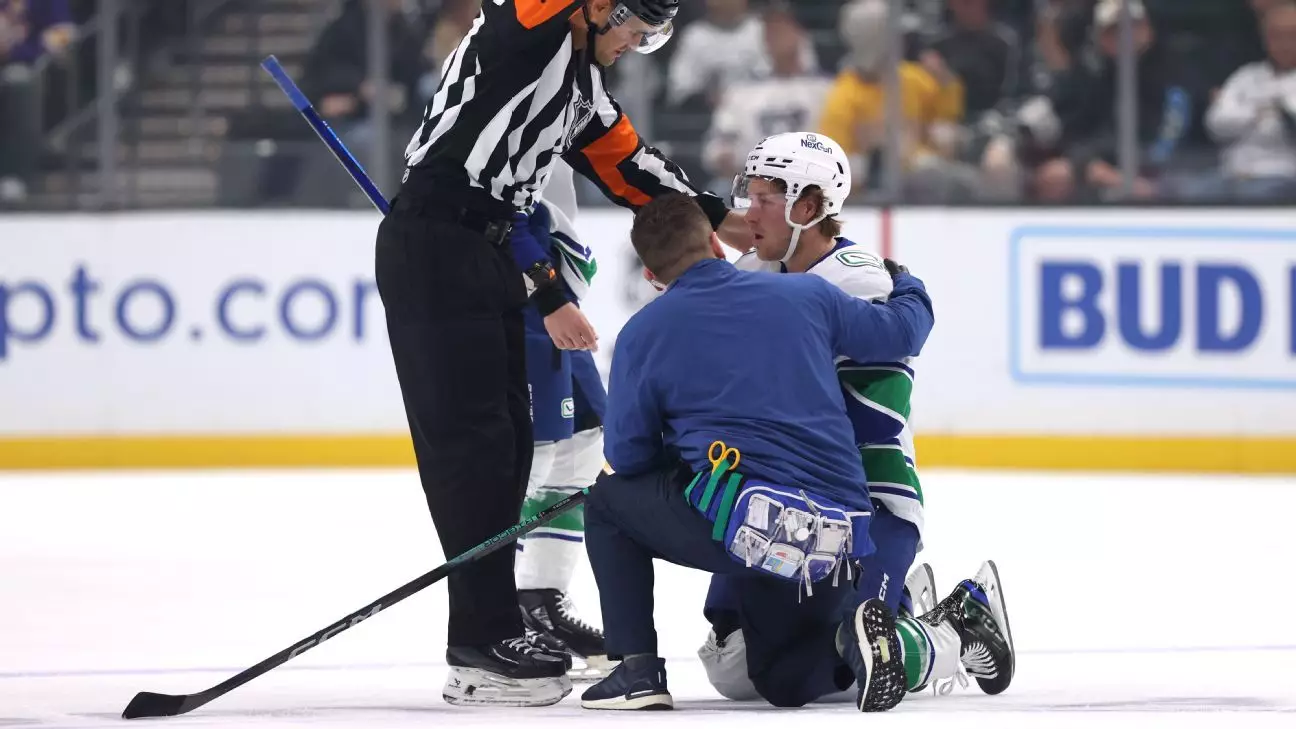In a crucial game against the Los Angeles Kings, Vancouver Canucks fans witnessed a potentially game-altering incident when forward Brock Boeser suffered a head injury due to a hit from Tanner Jeannot. Occurring midway through the first period, this moment not only affected the team’s performance but also cast a shadow over the remainder of their season. Coach Rick Tocchet remains uncertain regarding the timeline for Boser’s recovery, revealing the inherent unpredictability that surrounds head injuries in professional sports.
The Fallout of a Dangerous Hit
Jeannot’s actions were met with immediate judgment, as he was flagged for a match penalty for the illegal hit on Boeser. The NHL’s Department of Player Safety responded swiftly, suspending Jeannot for three games, highlighting the league’s stance on player safety and preventing such occurrences on the ice. The emotional toll of such injuries cannot be understated, especially for a player like Boeser, who has established himself as a key asset for the Canucks. Reflecting on the play, Tocchet described it as “dangerous,” demonstrating his clear concern for Boeser’s well-being. As the Canucks lost not just the game against the Kings, but also their leading scorer, the subsequent match against the Edmonton Oilers resulted in a staggering 7-3 defeat, showcasing the immediate impact of Boeser’s absence.
Brock Boeser, having led the Canucks with six goals in just twelve games, became a cornerstone of the team’s offensive strategy. His absence is likely to leave a noticeable gap that could hinder the team’s ability to compete effectively. While players are often viewed through statistics and performance metrics, the psychological impact on teammates should not be overlooked; they must now adjust to the new reality without their most potent scorer. The immediate call-up of 20-year-old Jonathan Lekkerimaki from Abbotsford underscores the urgent need for reinforcement. Lekkerimaki’s promising performance in the American Hockey League, where he recorded seven points in seven games, offers a glimmer of hope. However, the transition from AHL to NHL is a significant leap, and the burden of responsibility will weigh heavily on the young player’s shoulders.
The uncertainty surrounding Boeser’s injury places the Canucks in a precarious position as they prepare for their upcoming match against the Calgary Flames. The hope remains for Boeser’s swift recovery, but the timeline remains indefinite, leaving fans and players alike in a state of anxiety. As the organization navigates these challenges, it also brings to light the pressing issue of player health in the NHL—a concern that has garnered more attention over the years.
Ultimately, the Canucks must rally together in Boeser’s absence, demonstrating resilience in the face of adversity. Team dynamics, player adaptability, and the capability of new call-ups like Lekkerimaki will be crucial factors contributing to the team’s success or failure in the immediate future. Only time will reveal how the Canucks weather this storm and what the full implications of Boeser’s injury will be for their season.


Leave a Reply